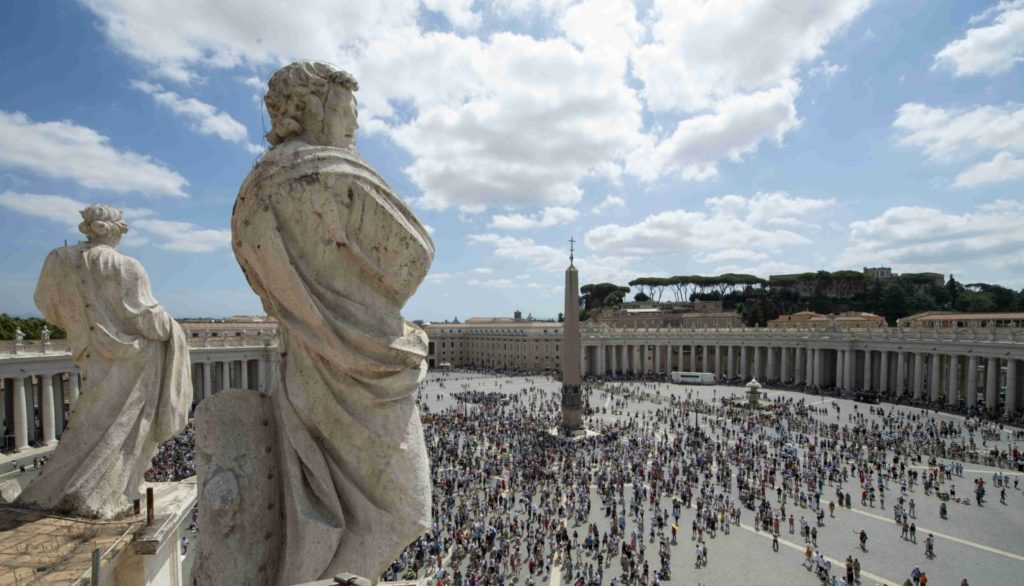Pope Francis prayed the Angelus from St. Peter's Square on the Sunday of St. Mary Queen. "The Gospel of today's liturgy," the Holy Father began, "shows us the reaction of the crowd and the disciples to Jesus' discourse after the miracle of the loaves. Jesus invited us to interpret this sign and to believe in him, who is the true bread come down from heaven, the bread of life; and he revealed that the bread he will give is his flesh and blood".
The Pope notes the reaction of many disciples, who leave him from that moment on. "These words sound harsh and incomprehensible to the ears of the people, so much so that, from that moment on, many disciples turn back, that is, they stop following the Master (vv. 60.66). Jesus then asked the Twelve: "Do you also want to go away?" (v. 67), and Peter, in the name of the whole group, confirms the decision to be with Him: "Lord, to whom shall we go? You have the words of eternal life, and we believe and know that you are the Holy One of God" (v. 67).Jn 6,68-69)".
"Let us dwell briefly on the attitude of those who withdraw" Francis encouraged, "they turn back and decide to no longer follow Jesus Where does this unbelief come from? What is the reason for this rejection?"
"Jesus' words arouse great scandal. He is telling us that God has chosen to manifest himself and bring about salvation in the weakness of human flesh. The incarnation of God is what causes scandal and what for these people, but often also for us, represents an obstacle. In fact, Jesus affirms that the true bread of salvation, the one that transmits eternal life, is his own flesh; that to enter into communion with God, before observing the laws or fulfilling religious precepts, it is necessary to live a real and concrete relationship with Him. This means that we must not seek God in dreams and images of greatness and power, but we must recognize him in the humanity of Jesus and, consequently, in that of the brothers and sisters we meet on life's journey. God became flesh and blood: he lowered himself to be man like us, he humbled himself to the point of taking upon himself our sufferings and our sin, and, therefore, he asks us to seek him not outside of life and history, but in our relationship with Christ and with our brothers and sisters".
"Today," the Pope assures us, "even the revelation of God in the humanity of Jesus can cause scandal and is not easy to accept. This is what St. Paul calls the 'foolishness' of the Gospel in the face of those who seek miracles or worldly wisdom (cf. 1 Co 1, 18-25). And this "scandal" is well represented by the sacrament of the Eucharist: what sense can it make, in the eyes of the world, to kneel before a piece of bread? Why should we eat this bread assiduously?"
"Before the prodigious gesture of Jesus who feeds thousands of people with five loaves of bread and two fish, everyone acclaims him and wants to carry him in triumph. But when he himself explains that this gesture is a sign of his sacrifice, that is, of the gift of his life, of his flesh and blood, and that whoever wants to follow him must assimilate him, must assimilate his humanity given for God and for others, then no, this Jesus is no longer doing well. Dear brothers and sisters, let us not be surprised if Jesus Christ puts us in crisis. On the contrary, let us worry if he does not put us in crisis, because perhaps we have watered down his message! And let us ask for the grace to allow ourselves to be provoked and converted by his "words of eternal life". May Mary Most Holy, who bore her Son Jesus in her flesh and united herself to his sacrifice, help us to always give witness to our faith with our concrete life.








